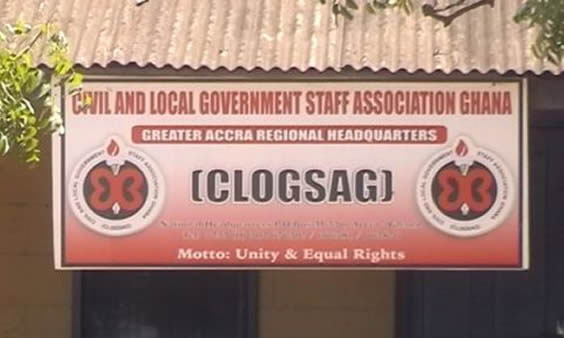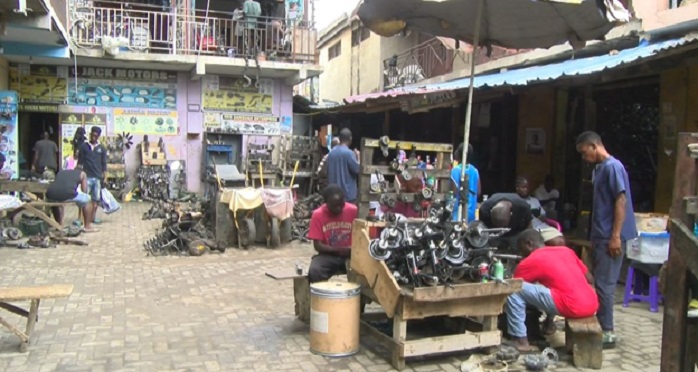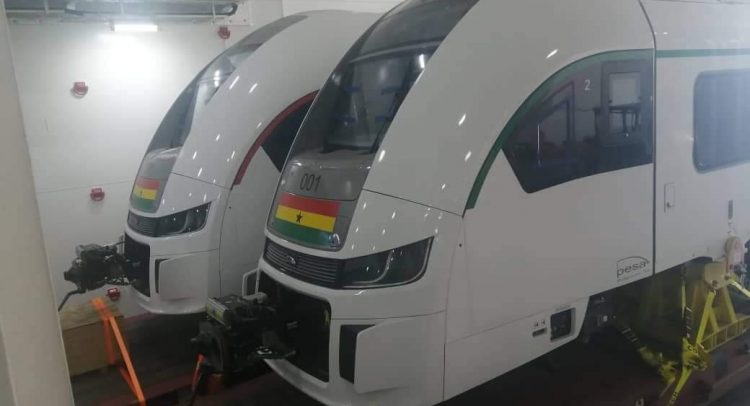
Tema. — The extension of the rail line from Tema to Akosombo would serve no meaningful purpose if attention is not given to dredging of key areas of the Volta Lake to enable the Volta Lake Transport Company (VLTC) to navigate all year-round.
The Director of Strategy and Corporate Affairs at Ghana Cement (GHACEM), who is also Chairman of the Cement Manufacturers Association of Ghana, Dr. George Dawson Amoah, disclosed this in an interview with The Chronicle in Tema on Monday, this week.
According to him, it is laudable to have the rail line extended to Akosombo for the purpose of transporting wet and dry cargo from the south to the north.
However, the project would become a white elephant if the cargo, which is supposed to get to the north, is locked up at Akosombo, because of the low level of the lake.
The development could create scarcity of the goods in the northern parts of the country, and subsequently shoot up the prices.
Since the construction of the new railway would involve huge capital investment, Dr. Dawson Amoah is, therefore, suggesting that the government includes in the contract the dredging of the Volta Lake, especially, between Debre and Buipe in the Northern Region, which is about 32 kilometres, to make it easy for the ships to navigate the area during the dry season.
The project, when executed, would also make it easy for the Volta Lake Transport (VLTC) to navigate the lake.
Amoah is further suggesting the dredging and construction of a new jetty at Number 4, the confluence of the Black and White Volta.
According to him if the construction of a jetty would not be possible, the government should not overlook that of the dredging, to ensure the smooth transportation of goods from the south to the north, and even the Sahelian countries.
In suggesting the construction of a jetty, he still insisted that dredging is the best option for now, because, in the case of jetty, cargoes would be discharged into warehouses, which construction would come at a cost, before they are reloaded onto trucks and transported via road to their final destinations.
The multiple handling of such goods, he said, would eventually increase the cost of the products for the people up north.
The government recently advertised its intention to extend the rail line from Tema through Juapong in the Volta Region, to Mpakadon in the Eastern Region, northeast of the Akosombo port and dam, as against a 1960s programme to break through the hills with tunnels to the Akosombo Port (Marine).
The VLTC, a subsidiary of the Volta River Authority (VRA), was incorporated in 1970, and initially could navigate the entire lake up to Yapei Port, but it stopped due to the low level of water in the reservoir.
Presently, when water builds up considerably, the VLTC can navigate over the longest distance to Buipe (412.5km).
When the water level drops below 241 feet, the vessels and barges carrying dry and wet cargoes for the cement companies and National Petroleum Authority (NPA) respectively, find it difficult to navigate through Debre, 380 kilometres north of Akosombo, and 32 kilometres south of the final destination. At this period, the rocks in the water become visible, thus making it impossible for the vessels to move.
This occurs in May every year, and the company, which source of income mainly comes from these two commodities, has to resort to mooring the vessels in the dock at Akosombo for months, before resuming trips in August, when the water level goes up.
The VLTC, in the lean season, depends solely on income generated from the five ferry crossing points dotted along the lake at Adawso, Kete Krachi Dambai, Yeji and Kpandu, where services do not even attract commercial rates for fares.
The Chronicle investigations revealed that formerly, VRA, which is responsible for the consumption of the water to generate electricity, was compensating the VLTC for inactiveness during this period, but also finds itself in a state of austerity, hence, not in a position to continue to assist financially.
VTLC, which works to pay itself, has a staff of 250, made up of marine engineers, marine navigators, deck hands and others.
Buipe Queen, the barge responsible for the shipment of petroleum products, is in dire need of two new engines, since the existing ones are weak and cannot make the journey to Buipe, as scheduled, to discharge its cargo at the tank farm.
Yapei and Volta Queen, which transport both dry cargo and passengers, have their navigational aid equipment being obsolete and are begging for replacements.
Read Full Story

























Facebook
Twitter
Pinterest
Instagram
Google+
YouTube
LinkedIn
RSS